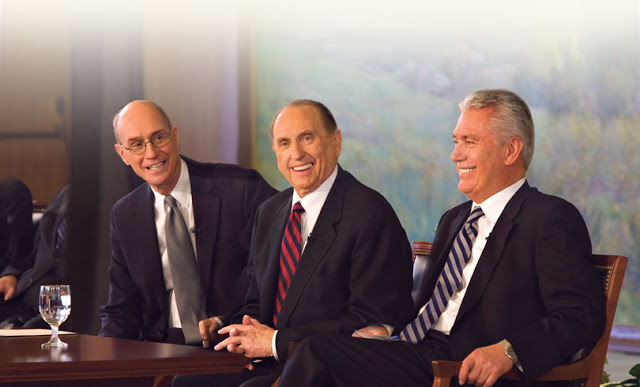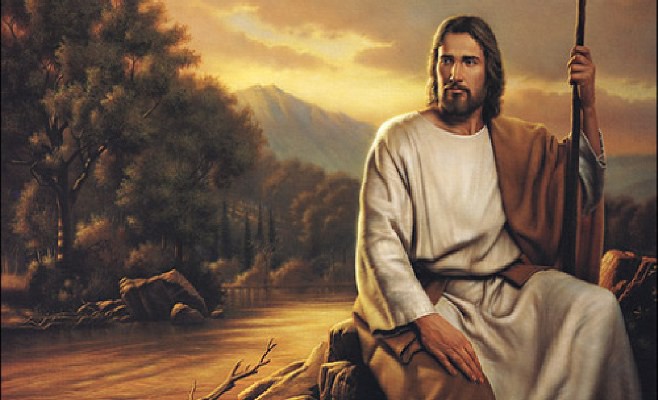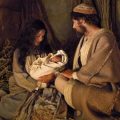Question
Gramps,
Our topic of discussions this month with the YW and YM is the priesthood. One of them asked,”What priesthood keys are held by Jesus Christ that the President of the church does not hold?” I was not able to answer the question at that time but stated I would find out. Can you help me with this question?
Jim
Answer
Jim,
To start with, we need to discuss the meaning of the word “keys”. Here’s the thing. It’s just a word. In the literal sense, of course, a key is an object, usually metal, that fits into a lock and when turned, opens that lock allowing access to something else. That is the meaning of a key symbolically too. It allows access to something that we cannot have access to otherwise. From this point of view, any permission, authority, or right may be understood to be a symbolic key. As Jesus Christ has all authority and power, He holds the complete keys to our salvation, for only through Him may we be saved. (John 14:6)
In the early days of the Church the word was used quite a bit more liberally than it is now as to what it meant. For example, Joseph Smith often spoke of the key to revelation. Sometimes he meant this in literal terms of the rights of the priesthood (which, from a certain perspective, it always is), but in other ways he spoke of keys to mean understanding in terms such as, “this grand Key; Knowledge is the power of God unto Salvation.”
One prime example that’s somewhat of a hot button in today’s climate is when Joseph referred to keys and ordination concerning the Relief Society. He said, “And I now turn the key to you in the name of God and this Society shall rejoice and knowledge and intelligence shall flow down from this time”
We see here the meaning of the phrase turning a key related to knowledge and understanding, rather than specific priesthood keys. Some like to see this phrase as indicitive that women have, or should have, priesthood keys. But Dallin H. Oaks clarified in the recent conference:
“The understanding we seek begins with an understanding of the keys of the priesthood. “Priesthood keys are the authority God has given to priesthood [holders] to direct, control, and govern the use of His priesthood on earth.” Every act or ordinance performed in the Church is done under the direct or indirect authorization of one holding the keys for that function. As Elder M. Russell Ballard has explained, “Those who have priesthood keys … literally make it possible for all who serve faithfully under their direction to exercise priesthood authority and have access to priesthood power.”
“In the controlling of the exercise of priesthood authority, the function of priesthood keys both enlarges and limits. It enlarges by making it possible for priesthood authority and blessings to be available for all of God’s children. It limits by directing who will be given the authority of the priesthood, who will hold its offices, and how its rights and powers will be conferred. For example, a person who holds the priesthood is not able to confer his office or authority on another unless authorized by one who holds the keys. Without that authorization, the ordination would be invalid. This explains why a priesthood holder–regardless of office–cannot ordain a member of his family or administer the sacrament in his own home without authorization from the one who holds the appropriate keys.
With the exception of the sacred work that sisters do in the temple under the keys held by the temple president, which I will describe hereafter, only one who holds a priesthood office an officiate in a priesthood ordinance. And all authorized priesthood ordinances are recorded on the records of the Church.”
Joseph Smith taught that,
“Adam holds the Keys of the dispensation of the fulness of times, i.e. the dispensation of all the times have been and will be revealed through him from the beginning to Christ and from Christ to the end of all world the dispensations that have [been and] are to be revealed.”
In D&C 128:10-11 we also learn more about keys, in this case specifically related to the living prophet who holds the keys to the kingdom on earth:
“10 And again, for the precedent, Matthew 16:18, 19: And I say also unto thee, That thou art Peter, and upon this rock I will build my church; and the gates of hell shall not prevail against it. And I will give unto thee the keys of the kingdom of heaven: and whatsoever thou shalt bind on earth shall be bound in heaven; and whatsoever thou shalt loose on earth shall be loosed in heaven.
11 Now the great and grand secret of the whole matter, and the summum bonum of the whole subject that is lying before us, consists in obtaining the powers of the Holy Priesthood. For him to whom these keys are given there is no difficulty in obtaining a knowledge of facts in relation to the salvation of the children of men, both as well for the dead as for the living.”
As you can see, the meaning of the word keys is consistent in one respect. It refers to authority and power. However, over the years we have narrowed and clarified the usage of the word to mean something more specific. Yes, it still refers to authority and power, but when we speak of keys now we speak of specific authorities and powers that relate to offices in the priesthood.
As it explains in the manual, DUTIES AND BLESSINGS OF THE PRIESTHOOD: BASIC MANUAL FOR PRIESTHOOD HOLDERS, PART B
“Some rights are given to a man automatically when he is given the Aaronic or Melchizedek Priesthood. For instance, when a man receives the Melchizedek Priesthood, he is given the authority to give father’s blessings, to give blessings of comfort, and to administer to the sick. He will hold these rights as long as he bears that priesthood. Even death cannot take this authority from him.
However, there are certain rights that one can be given that are only temporary. A branch president, for example, holds the keys of his branch only for the time he remains branch president. When he is released from that position, he no longer holds these keys.”
Specifically, in modern usage, those who hold keys are:
- The First Presidency and Quorum of the Twelve Apostles
- The Presidency of the Seventy
- The Presidents of temples, missions, stakes, and districts
- Bishops and branch presidents
- Quorum presidents (including Aaronic Priesthood quorum presidents)
The simplest way to understand modern usage of priesthood keys is to think in terms of saving ordinances. A man who has the priesthood can exercise certain authority and power on his own. However, he cannot baptize someone without first gaining permission from someone with those keys (usually the bishop). Only those with the proper keys can authorize saving priesthood ordinances to be performed.
In that sense, does the Savior hold keys (the right to the administration of saving ordinances) that the living prophet does not? It would seem so. President Brigham Young taught, for example:
“It is supposed by this people that we have all the ordinances in our possession for life and salvation, and exaltation, and that we are administering in those ordinances. This is not the case. We are in possession of all the ordinances that can be administered in the flesh; but there are other ordinances and administrations that must be administered beyond this world. I know you would like to ask what they are. I will mention one. We have not, neither can we receive here, the ordinance and the keys of resurrection.”
What other ordinances are there that we don’t have? I do not know for sure. A few other potentials that are mentioned by Spencer W. Kimball, from where I pulled the above Brigham Young quote, are the power to create a spirit and the power to fashion worlds. Will these be specific ordinances in the same regard as baptism and the like? I guess someday we’ll find out.
Gramps







